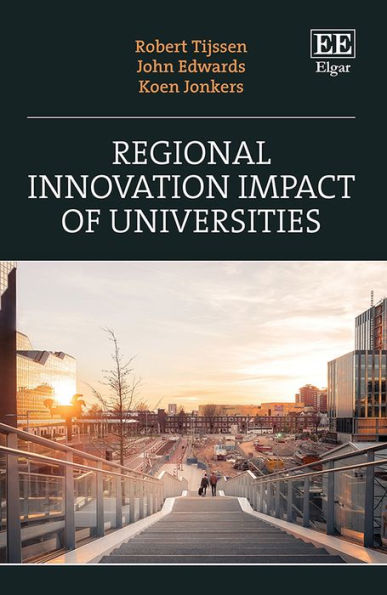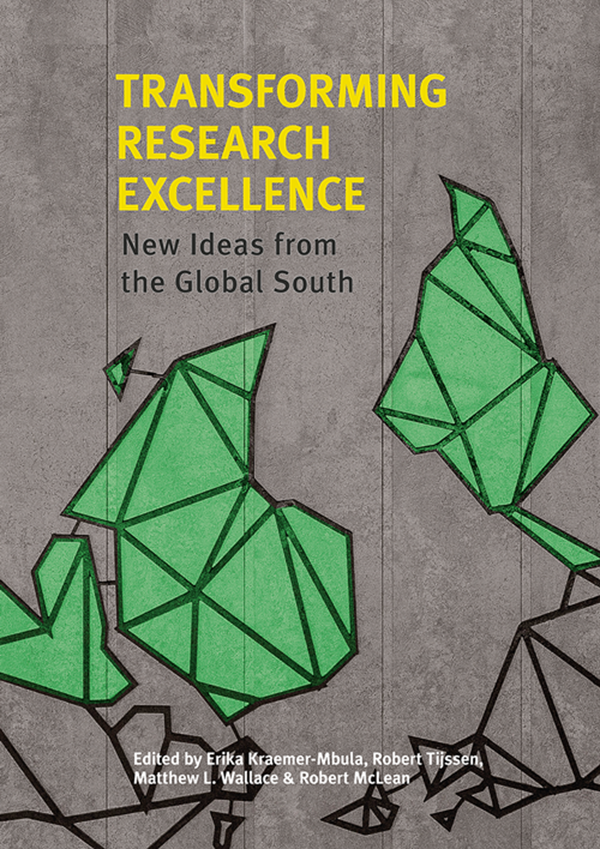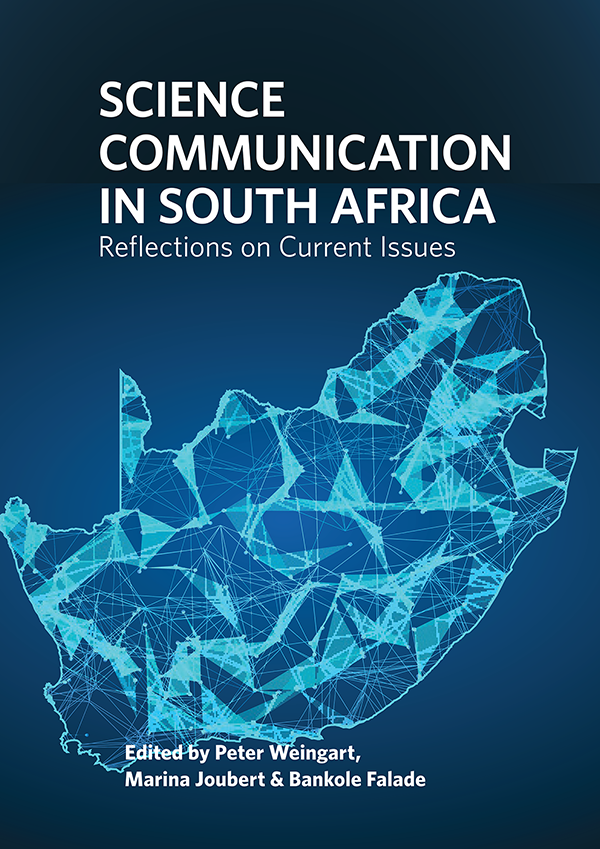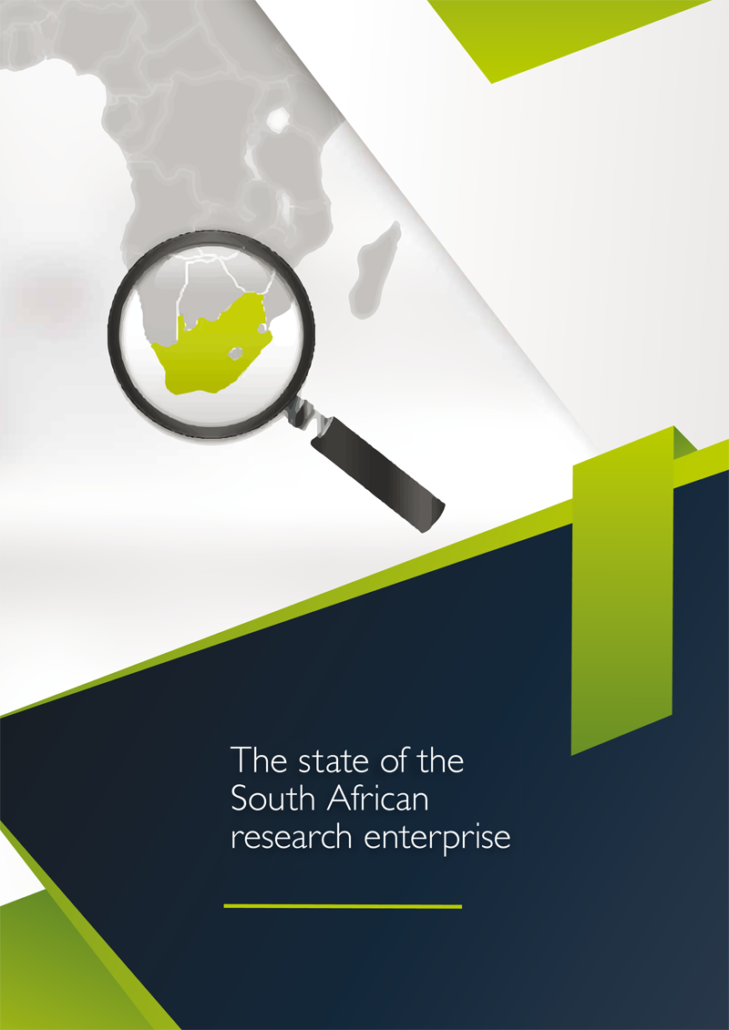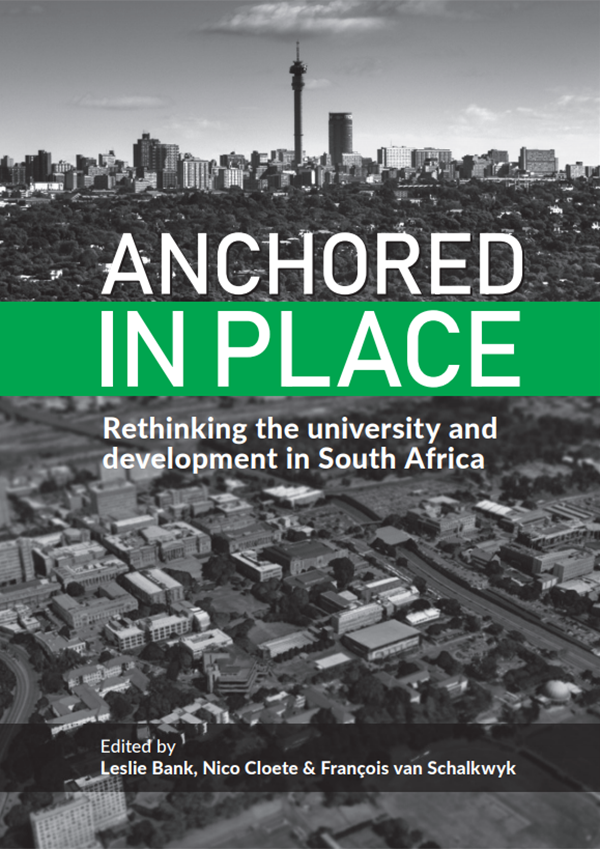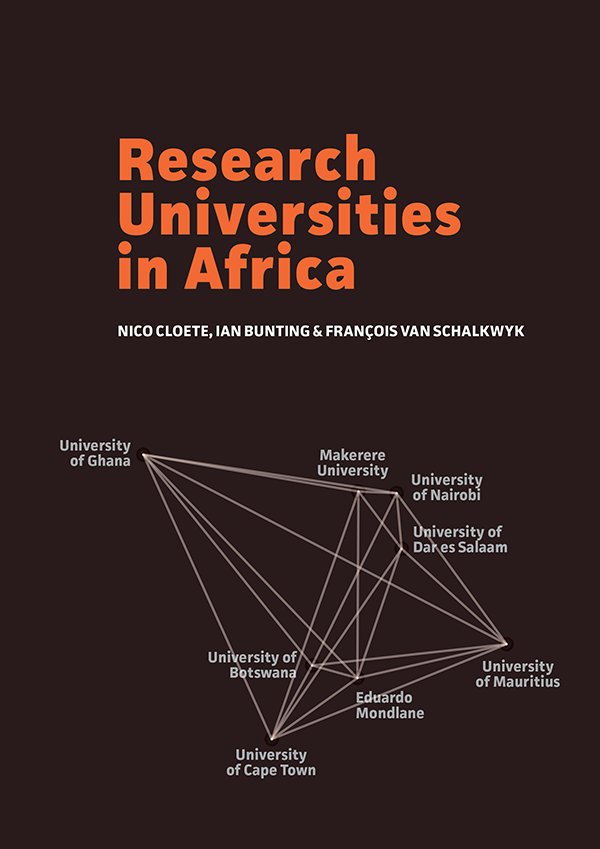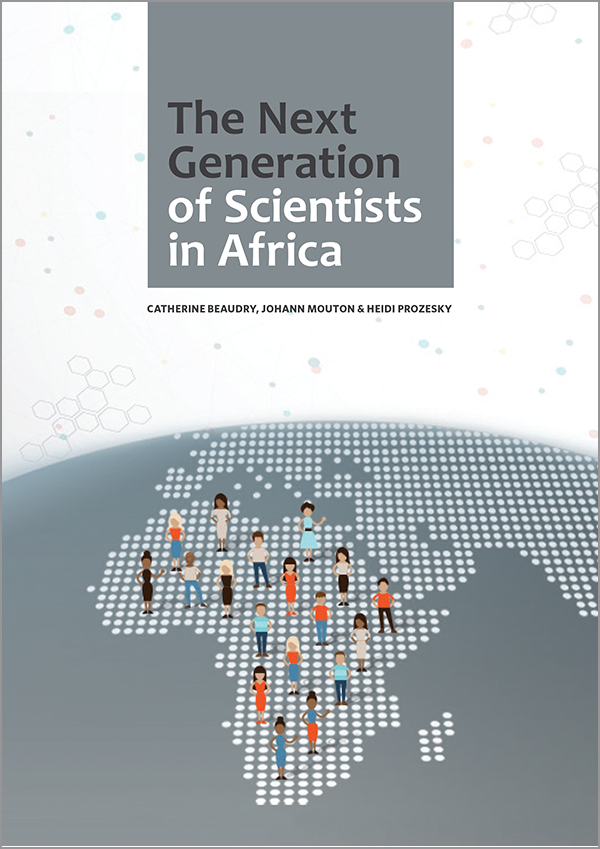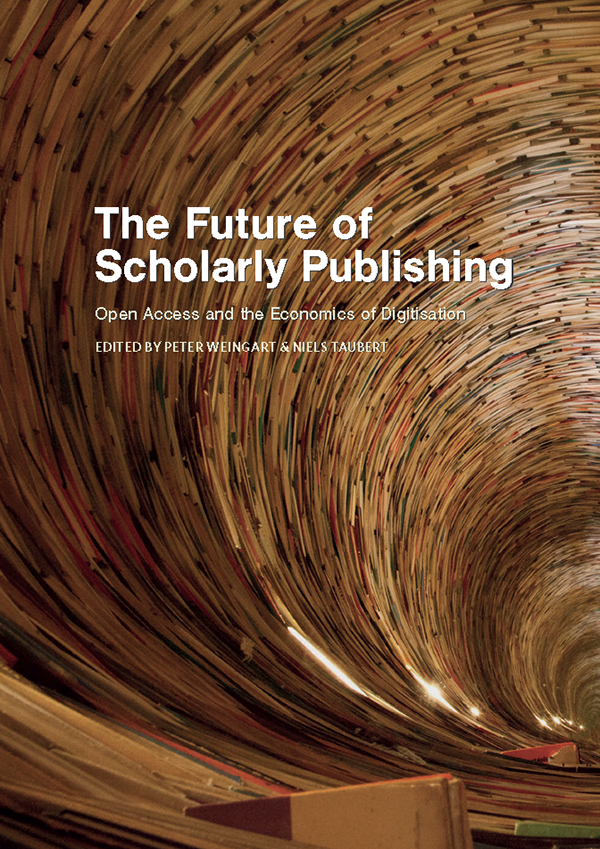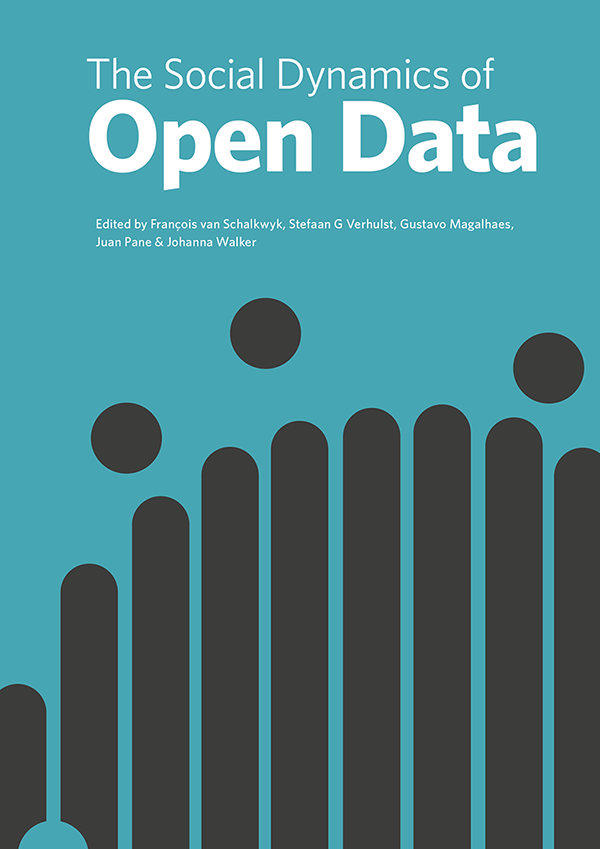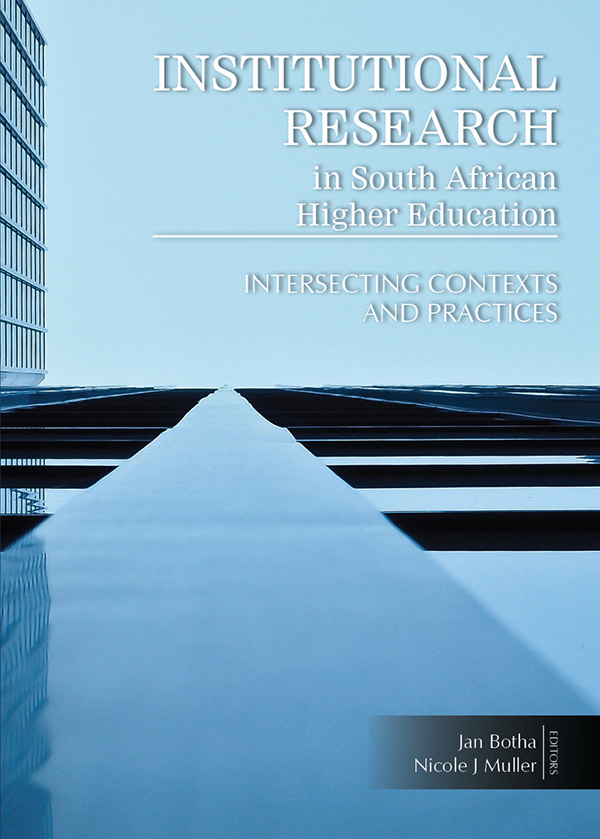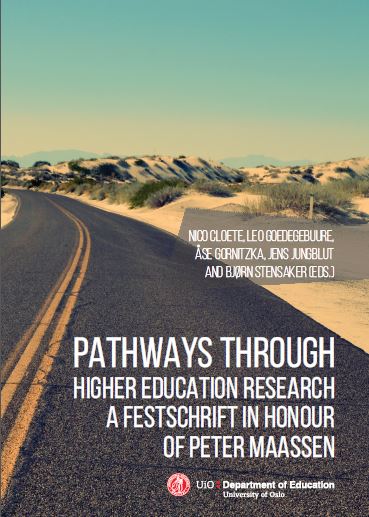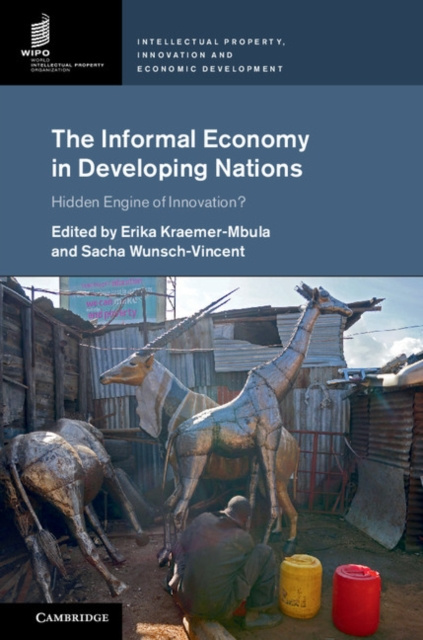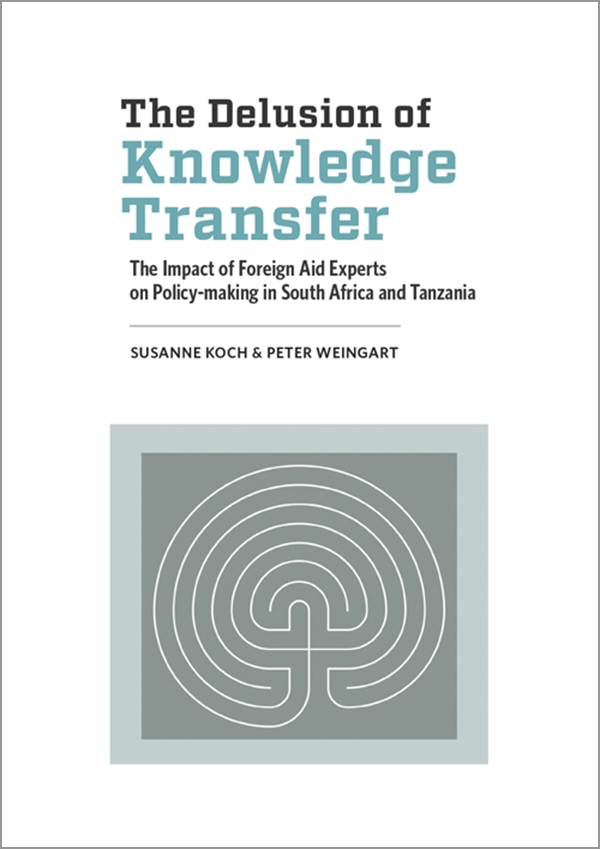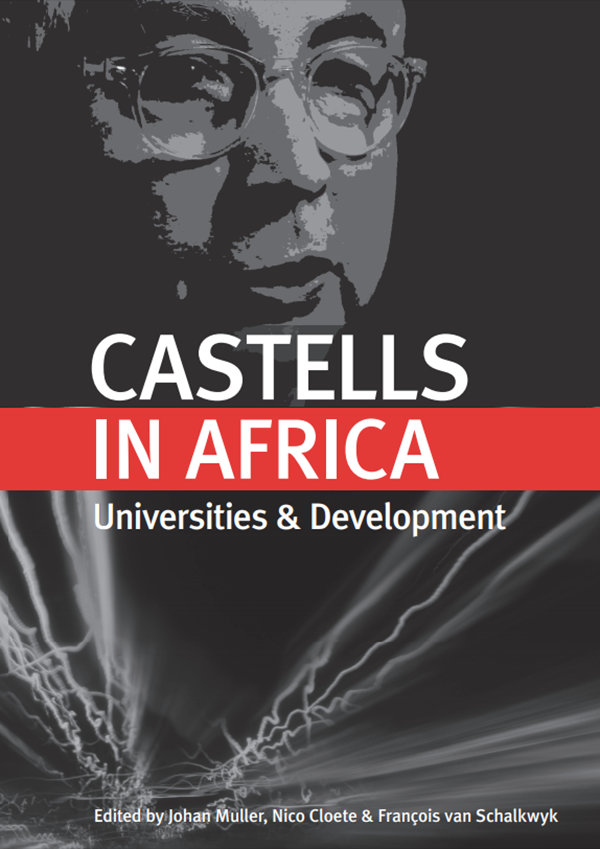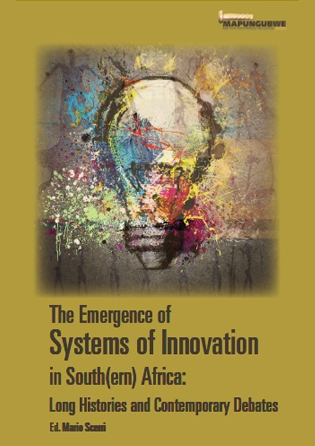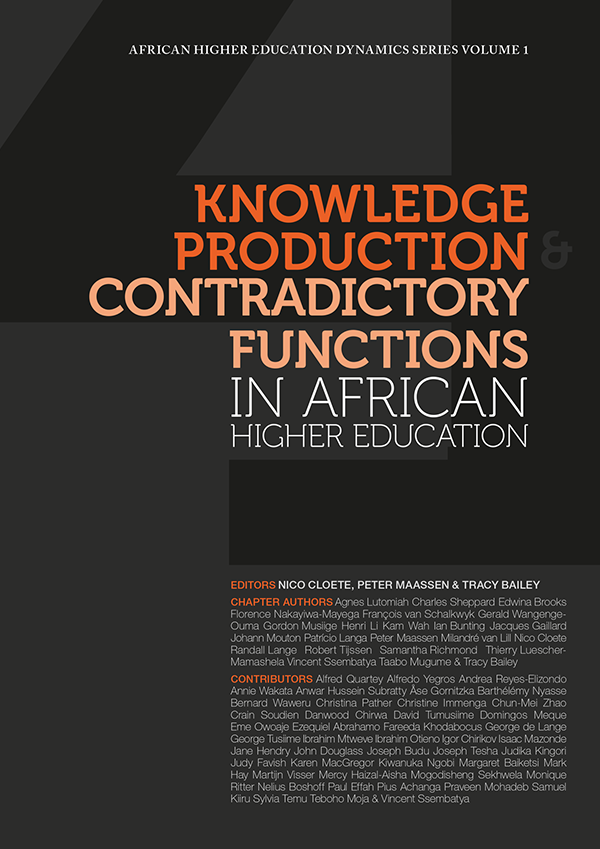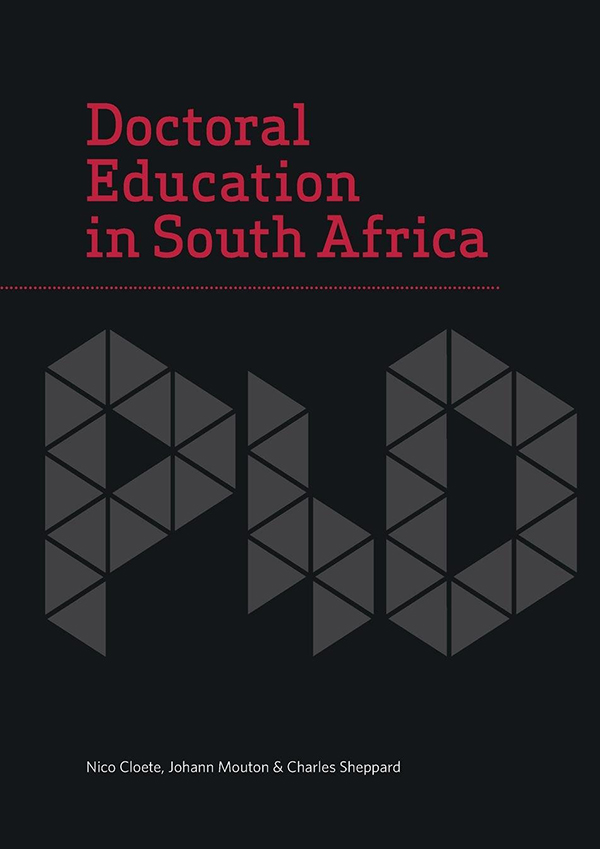2021
Utilization of South African Research on Higher Education
Editors: Botha, J. & Vilyte, G. (eds)
Publisher: African Sun Media
Publication date: Forthcoming
Regional Innovation Impact of Universities
Editors: Robert Tijssen, John Edwards and Koen Jonkers
Publisher: Edward Elgar Publishing
Publication date: 214 May 2021
Driven by European Union policy challenges, this cutting-edge book focuses upon the Regional Innovation Impact (RII) of universities, to analyse the socioeconomic impact that universities in Europe have on their hometowns, metropolitan areas and regions.
By developing a conceptual model of RII, and by applying a mixed-method ‘narrative with numbers’ analytical framework, the case studies presented in this book describe the RII potential and performance of twenty research-active universities throughout Europe. The findings and lessons learned are framed within the context of RII-related policy challenges within the European Commission, and possible EC funding instruments for incentivising RII within universities. Key features include an analysis of EU policy instruments and assessment frameworks for regional leadership, human capital development and knowledge transfer.
Insightful and original, the lessons provided within this book will be beneficial to European, national and regional policy makers interested in approaches to incentivise universities to contribute more to regional innovation systems. It will also be of interest to university leaders and administrators who wish to develop strategies to orient their organisations towards increasing their RII.
2020
Transforming Research Excellence: Views from the Global South
Editors: Erika Kraemer-Mbula, Robert Tijssen, Matthew L. Wallace and Robert McLean
Publisher: African Minds
Publication date: 20 January 2020
Modern-day science is under great pressure. A potent mix of increasing expectations, limited resources, tensions between competition and cooperation, and the need for evidence-based funding is creating major change in how science is conducted and perceived. Amidst this ‘perfect storm’ is the allure of ‘research excellence’, a concept that drives decisions made by universities and funders, and defines scientists’ research strategies and career trajectories.
But what is ‘excellent’ science? And how to recognise it? After decades of inquiry and debate there is still no satisfactory answer. Are we asking the wrong question? Is reality more complex, and ‘excellence in science’ more elusive, than many are willing to admit? And how should excellence be defined in different parts of the world, particularly in lower-income countries of the ‘Global South’ where science is expected to contribute to pressing development issues, despite often scarce resources? Many wonder whether the Global South is importing, with or without consenting, the flawed tools for research evaluation from North America and Europe that are not fit for purpose.
This book takes a critical view of these issues, touching on conceptual issues and practical problems that inevitably emerge when ‘excellence’ is at the center of science systems. Emerging from the capacity-building work of the Science Granting Councils Initiative in sub-Saharan Africa, it speaks to scholars, as well as to managers and funders of research around the world. Confronting sticky problems and uncomfortable truths, the chapters contain insights and recommendations that point towards new solutions – both for the Global South and the Global North.
2019
Science Communication in South Africa: Reflections on Current Issues
Editors: Peter Weingart, Marina Joubert and Bankole Falade
Publisher: African Minds
Publication date: 28 November 2019
Why do we need to communicate science? Is science, with its highly specialised language and its arcane methods, too distant to be understood by the public? Is it really possible for citizens to participate meaningfully in scientific research projects and debate? Should scientists be mandated to engage with the public to facilitate better understanding of science? How can they best communicate their special knowledge to be intelligible? These and a plethora of related questions are being raised by researchers and politicians alike as they have become convinced that science and society need to draw nearer to one another.
Once the persuasion took hold that science should open up to the public and these questions were raised, it became clear that coming up with satisfactory answers would be a complex challenge. The inaccessibility of scientific language and methods, due to ever increasing specialisation, is at the base of its very success. Thus, translating specialised knowledge to become understandable, interesting and relevant to various publics creates particular perils. This is exacerbated by the ongoing disruption of the public discourse through the digitisation of communication platforms. For example, the availability of medical knowledge on the internet and the immense opportunities to inform oneself about health risks via social media are undermined by the manipulable nature of this technology that does not allow its users to distinguish between credible content and misinformation.
In countries around the world, scientists, policy-makers and the public have high hopes for science communication: that it may elevate its populations educationally, that it may raise the level of sound decision-making for people in their daily lives, and that it may contribute to innovation and economic well-being. This collection of current reflections gives an insight into the issues that have to be addressed by research to reach these noble goals, for South Africa and by South Africans in particular.
The state of the South African Research Enterprise
Authors: Johann Mouton, Isabel Basson, Jaco Blanckenberg, Nelius Boshoff, Heidi Prozesky, Herman Redelinghuys, Rein Treptow, Milandré van Lill & Marthie van Niekerk
Publisher: SciSTIP: Stellenbosch
Publication date: 26 August 2019
The study, which was commissioned by the NRF in 2015, arguably provides the most comprehensive assessment of the state and recent trends of South African research.
The report consists of four main parts: the first part (International benchmarking) compares the performance of the SA research enterprise with four sets of countries (the lead countries in the world, eight comparator countries, the top African countries and the BRICS countries); the second part (historical benchmarking) presents an overview of SA’s performance in terms of investment in research, human resources capacity and research performance (output, world share, world rank, collaboration trends, citation impact and research transformation) over the past 15 years. The third part – scientific field assessment – presents detailed results on an assessment of six main fields (agriculture, engineering, health sciences, humanities, the natural sciences and social sciences) in terms of NRF funding, research capacity (including trends in doctoral enrolments and graduations) and research performance. The final section of the report – strategic research assessment – presents an analysis of six strategic fields (agriculture and food security research , climate and environmental research, educational research, energy research, health research and water research).
In each case we assess to what extent the investment and human resources capacity in these strategic fields are adequate, what the knowledge expertise in each domain is, what the current research priorities are and whether these align with international (SDG) and national (NDP) goals.
2018
Anchored in Place: Rethinking universities and development in South Africa
Editors: Leslie Bank, Nico Cloete and Francois van Schalkwyk
Publisher: African Minds
Publication date: 26 October 2018
Tensions in South African universities have traditionally centred around equity (particularly access and affordability), historical legacies (such as apartheid and colonialism), and the shape and structure of the higher education system. What has not received sufficient attention, is the contribution of the university to place-based development.
This volume is the first in South Africa to engage seriously with the place-based developmental role of universities. In the international literature and policy there has been an increasing integration of the university with place-based development, especially in cities. This volume weighs in on the debate by drawing attention to the place-based roles and agency of South African universities in their local towns and cities. It acknowledges that universities were given specific development roles in regions, homelands and towns under apartheid, and comments on why sub-national, place-based development has not been a key theme in post-apartheid, higher education planning.
Given the developmental crisis in the country, universities could be expected to play a more constructive and meaningful role in the development of their own precincts, cities and regions. But what should that role be? Is there evidence that this is already occurring in South Africa, despite the lack of a national policy framework? What plans and programmes are in place, and what is needed to expand the development agency of universities at the local level? Who and what might be involved? Where should the focus lie, and who might benefit most, and why? Is there a need perhaps to approach the challenges of college towns, secondary cities and metropolitan centers differently?
This book poses some of these questions as it considers the experiences of a number of South African universities, including Wits, Pretoria, Nelson Mandela University and especially Fort Hare as one of its post-centenary challenges.
Research Universities in Africa
Authors: Nico Cloete, Ian Bunting and Francois van Schalkwyk
Publisher: African Minds
Publication date: 5 November 2018
From the early 2000s, a new discourse emerged, in Africa and the international donor community, that higher education was important for development in Africa. Within this ‘zeitgeist’ of converging interests, a range of agencies agreed that a different, collaborative approach to linking higher education to development was necessary. This led to the establishment of the Higher Education Research and Advocacy Network in Africa (Herana) to concentrate on research and advocacy about the possible role and contribution of universities to development in Africa.
This book is the final publication to emerge from the Herana project. The project has also published more than 100 articles, chapters, reports, manuals and datasets, and many presentations have been delivered to share insights gained from the work done by Herana. Given its prolific dissemination, it seems reasonable to ask whether this fourth and final publication will offer the reader anything new.
This book is certainly different from previous publications in several respects. First, it is the only book to include an analysis of eight African universities based on the full 15 years of empirical data collected by the project. Second, previous books and reports were published mid-project. This book has benefited from an extended gestation period allowing the authors and contributors to reflect on the project without the distractions associated with managing and participating in a large-scale project. For the first time, some of those who have been involved in Herana since its inception have had the opportunity to at least make an attempt to see part of the wood for the trees.
Different does not necessarily mean new. An emphasis on the ‘newness’ of the data and perspectives presented in this book is important because it shows that it is more than a historical record of a donor-funded project. Rather, each chapter in this book brings, to a lesser or greater extent, something new to our understanding of universities, research and development in Africa.
The Next Generation of Scientists in Africa
Authors: Catherine Beaudry, Johann Mouton and Heidi Prozesky
Publisher: African Minds
Publication date: 6 November 2018
Young scientists are a powerful resource for change and sustainable development, as they drive innovation and knowledge creation. However, comparable findings on young scientists in various countries, especially in Africa and developing regions, are generally sparse. Therefore, empirical knowledge on the state of early-career scientists is critical in order to address current challenges faced by those scientists in Africa.
This book reports on the main findings of a three-and-a-half-year international project in order to assist its readers in better understanding the African research system in general, and more specifically its young scientists.
The first part of the book provides background on the state of science in Africa, and bibliometric findings concerning Africa’s scientific production and networks, for the period 2005 to 2015. The second part of the book combines the findings of a large-scale, quantitative survey and more than 200 qualitative interviews to provide a detailed profile of young scientists and the barriers they face in terms of five aspects of their careers: research output; funding; mobility; collaboration; and mentoring. In each case, field and gender differences are also taken into account. The last part of the book comprises conclusions and recommendations to relevant policy- and decision-makers on desirable changes to current research systems in Africa.
2017
The Future of Scholarly Publishing: Open Access and the Economics of Digitisation
Editors: Peter Weingart and Niels Taubert
Publisher: African Minds
Publication date: 28 September 2017
The formal scientific communication system is currently undergoing significant change. This is due to four developments: the digitisation of formal science communication; the economisation of academic publishing as profit drives many academic publishers and other providers of information; an increase in the self-observation of science by means of publication, citation and utility-based indicators; and the medialisation of science as its observation by the mass media intensifies. Previously, these developments have only been dealt with individually in the literature and by science-policy actors.
The Future of Scholarly Publishing documents the materials and results of an interdisciplinary working group commissioned by the Berlin-Brandenburg Academy of Sciences and Humanities (BBAW) to analyse the future of scholarly publishing and to make recommendations on how to respond to the challenges posed by these developments.
As per the working group’s intention, the focus was mainly on the sciences and humanities in Germany. However, in the course of the work it became clear that the issues discussed by the group are equally relevant for academic publishing in other countries. As such, this book will contribute to the transfer of ideas and perspectives, and allow for mutual learning about the current and future state of scientific publishing in different settings.
The Social Dynamics of Open Data
Editors: Francois van Schalkwyk, Stefaan Verhulst, Gustavo Magalhaes, Juan Pane and Johanna Walker
Publisher: African Minds
Publication date: 12 December 2017
The Social Dynamics of Open Data is a selection of peer reviewed papers presented at the 2nd Open Data Research Symposium (ODRS) held in Madrid, Spain, on 5 October 2016.
Research is critical to developing a more rigorous and fine-combed analysis not only of why open data is valuable, but how it is valuable and under what specific conditions. The objective of the Open Data Research Symposium and the subsequent collection of chapters published here is to build such a stronger evidence base. This base is essential to understanding what open data’s impacts have been to date, and how positive impacts can be enabled and amplified. Consequently, common to the majority of chapters in this collection is the attempt by the authors to draw on existing scientific theories, and to apply them to open data to better explain the socially embedded dynamics that account for open data’s successes and failures in contributing to a more equitable and just society.
2016
Institutional research in South African higher education ‒ intersecting contexts and practices
Authors: Botha, J. & Muller, N.
Publisher: African Sun Media
Publication date: 2016
This book, jointly edited by Professor Jan Botha and Ms Nicole Muller has the distinction of being the first book written on institutional research in South Africa and as such has a critical role to play in furthering research on the topic in the country. Institutional Research (IR) as a focus area within the broader field of higher education research (HER) has developed over the past fifty years or so into an established field of scholarship and practice, based in institutions and organised into a network of professionals and academic associations across the world. In this book, twenty-six authors representing thirteen different universities in South Africa and the USA as well as the Department of Higher Education and Training present the results of research projects undertaken specifically for the purpose of this book, namely to analyse and explain the history, current state and possible future directions for IR in South African Higher Education. Engaging with and building on leading IR theories the authors of this book tell the story of IR in South African Higher Education, highlighting the range of intersecting contexts and practices characterizing this field of scholarship and practice in this part of the world.
Pathways through Higher Education Research: A festschrift in honour of Peter Maassen
Authors: Cloete, N., Goedegebuure, L., Gornitzka, A., Jungblut, J., Stensaker, B.
Publisher: University of Oslo
Publication date: 19 October 2016
This festschrift was published in honour of Professor Peter Maassen who turned 60 this year. It addresses various topics. But it is also about the maturing field of higher education studies, which only started to develop during the 1960s. The book consists of 28 short chapters divided into four themes: higher education governance and reform; European integration in higher education; higher education in Africa; and education and research on higher education. In total there are 40 contributors, a mix of some of the world’s best known higher education researchers such as Van Vught, De Boer, Stensaker, Enders, Gornitzka, Teichler and Meek, as well as a number of younger scholars such as Langa, Wangenge-Ouma, Pinheiro and Jungblut (all of whom were influenced by Maassen in one way or another).
The informal economy in developing nations: hidden engine of innovation?
Authors: Kraemer-Mbula, E., Wunsch-Vincent, S.
Publisher: Cambridge University Press
Publication date: October 2016
The informal economy represents a significant share of output and employment in many developing countries. Yet little is known about this hidden engine of innovation. This pioneering study addresses some crucial questions, including: what is the role of the informal sector in economic development? How does innovation occur in the informal economy? How does it spread, who are the key actors and what impacts does it have? How do inventors and entrepreneurs in the informal economy reap benefits from their innovations? What stops informal sector innovation from scaling up? How can informal sector innovation in developing countries be measured? And what policies might support informal sector innovation and improve its impacts? This book will stimulate further work on this crucial but under-researched subject. As well as rich empirical evidence from several groundbreaking studies, it includes conceptual and methodological tools and policy recommendations to help researchers and policy-makers understand innovation in the informal economy.
The Delusion of Knowledge Transfer: The impact of foreign aid experts on policy-making in South Africa and Tanzania
Authors: Susanne Koch and Peter Weingart
Publisher: African Minds
Publication date: 3 October 2016
With the rise of the ‘knowledge for development’ paradigm, expert advice has become a prime instrument of foreign aid. At the same time, it has been object of repeated criticism: the chronic failure of ‘technical assistance’ – a notion under which advice is commonly subsumed – has been documented in a host of studies. Nonetheless, international organisations continue to send advisors, promising to increase the ‘effectiveness’ of expert support if their technocratic recommendations are taken up.
This book reveals fundamental problems of expert advice in the context of aid that concern issues of power and legitimacy rather than merely flaws of implementation. Based on empirical evidence from South Africa and Tanzania, the authors show that aid-related advisory processes are inevitably obstructed by colliding interests, political pressures and hierarchical relations that impede knowledge transfer and mutual learning. As a result, recipient governments find themselves caught in a perpetual cycle of dependency, continuously advised by experts who convey the shifting paradigms and agendas of their respective donor governments.
For young democracies, the persistent presence of external actors is hazardous: ultimately, it poses a threat to the legitimacy of their governments if their policy-making becomes more responsive to foreign demands than to the preferences and needs of their citizens.
Castells in Africa: Universities & Development
Authors: Muller, J., Cloete, N. & Van Schalkwyk, F
Publisher: African Minds
Publication date: 3 May 2016
Castells in Africa: Universities and Development collects the papers produced by Manuel Castells on his visits to South Africa, and publishes them in a single volume for the first time. The book also publishes a series of empirically-based papers which together display the multi-faceted and far-sighted scope of his theoretical framework, and its fecundity for fine-grained, detailed empirical investigations on universities and development in Africa. Castells, in his afterword to this book, always looking forward, assesses the role of the university in the wake of the upheavals to the global economic order. He decides the university’s function not only remains, but is more important than ever. This book will serve as an introduction to the relevance of his work for higher education in Africa for postgraduate students, reflective practitioners and researchers.
The emergence of systems of innovation in south(ern) Africa: long histories and contemporary debates
Authors: Scerri, M.
Publisher: MISTRA publications
Publication date: 2016
This book, edited by Professor Maria Scerri promises to be a captivating read and a first of its kind. The book, divided into a section on “Histories” and a second on “Thematic Areas” traces the existence, nature and the evolution of systems of innovation in South Africa. The book covers the time period between the Early Stone Age to the present date. Within the first section the focus is on providing a chronological history of the developments in the territory that would later be joined into the Republic of South Africa. The second section moves the focus to the present and addresses several critical aspects of the post-apartheid national system of innovation.
2015
Knowledge production and contradictory functions in African higher education
Authors: Cloete, N., Maassen, P., Bailey, T.
Publisher: African Minds
Publication date: 2015
Africa has more than half of the 20 fastest-growing economies in the world, which has contributed to what has been called the era of ‘Africa Rising’ or a ‘New Africa’. In order to further strengthen socio-economic development, African universities need to improve their ability to produce and apply knowledge in effective and relevant ways. In OECD countries there are several public and private sites for knowledge production, but in Africa the university is the only knowledge institution, and hardly any knowledge is produced outside of the university. However, the performance of African universities in knowledge production has not been impressive. It has generally been acknowledged by agencies such as the African Observatory for Science, Technology and Innovation and the World Bank, as well as leading development scholars, that African universities are lagging behind the rest of the world in their knowledge production function. There has been only weak empirical evidence on the actual performance of universities, with virtually no cross-institutional and cross-country comparative research on the factors that are responsible for the poor performance of universities in knowledge production across the continent. The crossroads African universities are facing consist of, on the one hand, a familiar path of relative decoupling between the university and its nation’s socio-economic development and, on the other hand, a path that requires far-reaching changes that could make it possible for the African university to connect much more productively to the main actors in emerging national (and in some cases regional) development and innovation networks. For the latter path to become accessible, these universities and their national authorities need research-rooted information.
Doctoral Education in South Africa
Authors: Nico Cloete, Johann Mouton and Charles Sheppard
Publisher: African Minds
Publication date: November 2015
Worldwide, in Africa and in South Africa, the importance of the doctorate has increased disproportionately in relation to its share of the overall graduate output over the last decade. This heightened attention has not only been concerned with the traditional role of the PhD, namely the provision of a future supply of academics. Rather, it has focused on the increasingly important role that higher education – particularly high-level skills – is perceived to play in national development and the knowledge economy.
This book is unique in the area of research into doctoral studies because it draws on a large number of studies conducted by the Centre of Higher Education Trust (CHET) and the Centre for Research on Evaluation, Science and Technology (CREST) over the past decade. In addition to these historical studies, new quantitative and qualitative research was undertaken to produce the evidence base for the anbalyses presented in the book. The studies focused on a range of issues related to the growth, efficiency, quality and transformation of doctoral education, doctoral supervision, doctoral tracer studies as well as drawing on studies from the rest of Africa and the world.
The book makes recommendations about strengthening traditional doctoral education, and proposes a paradigm shift. It concludes by raising three policy issues: reaching the National Development Plan 2030 target of 5 000 graduates per annum, South Africa as a PhD hub for Africa and differentiation among different groups of doctorate-producing institutions.

